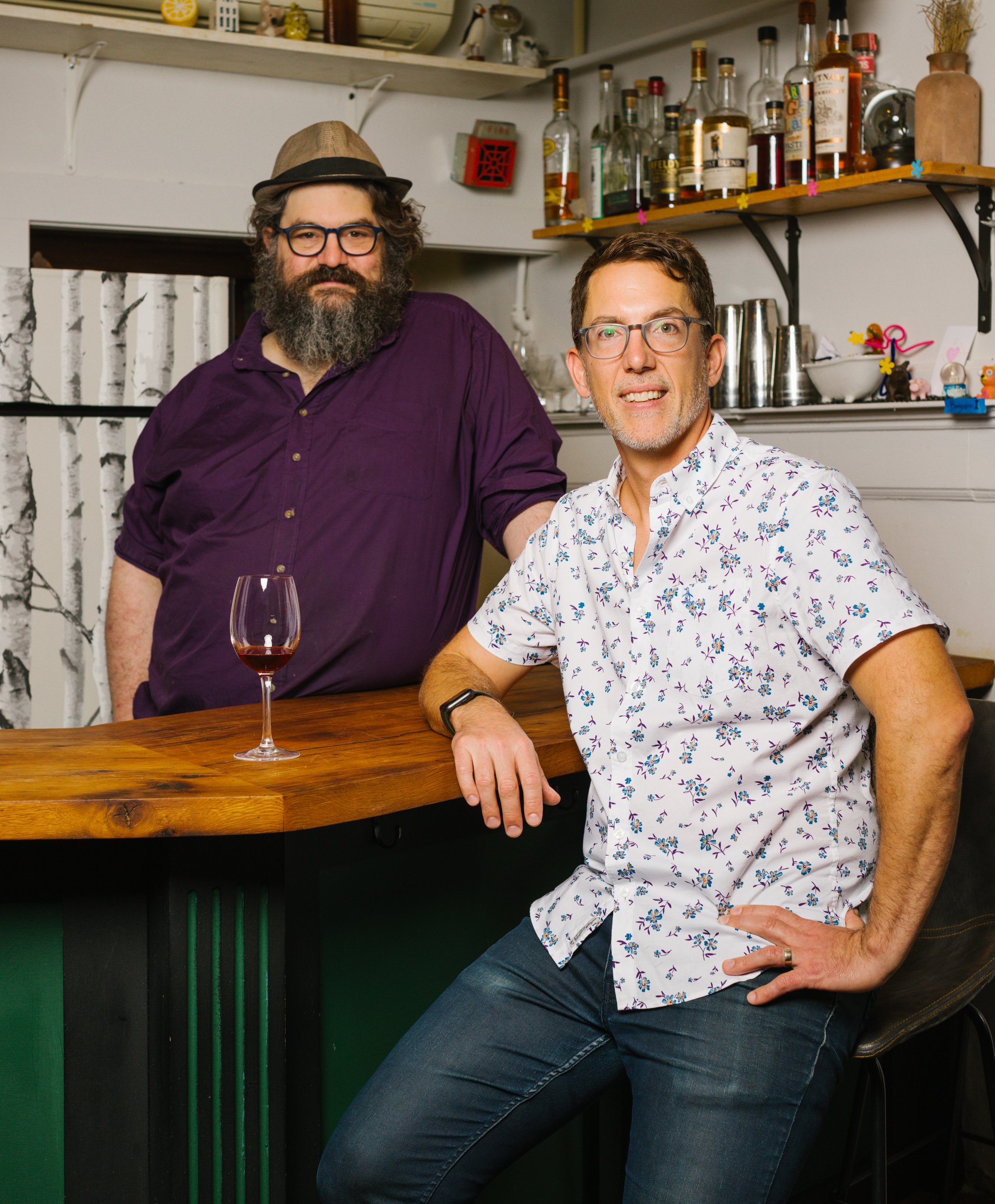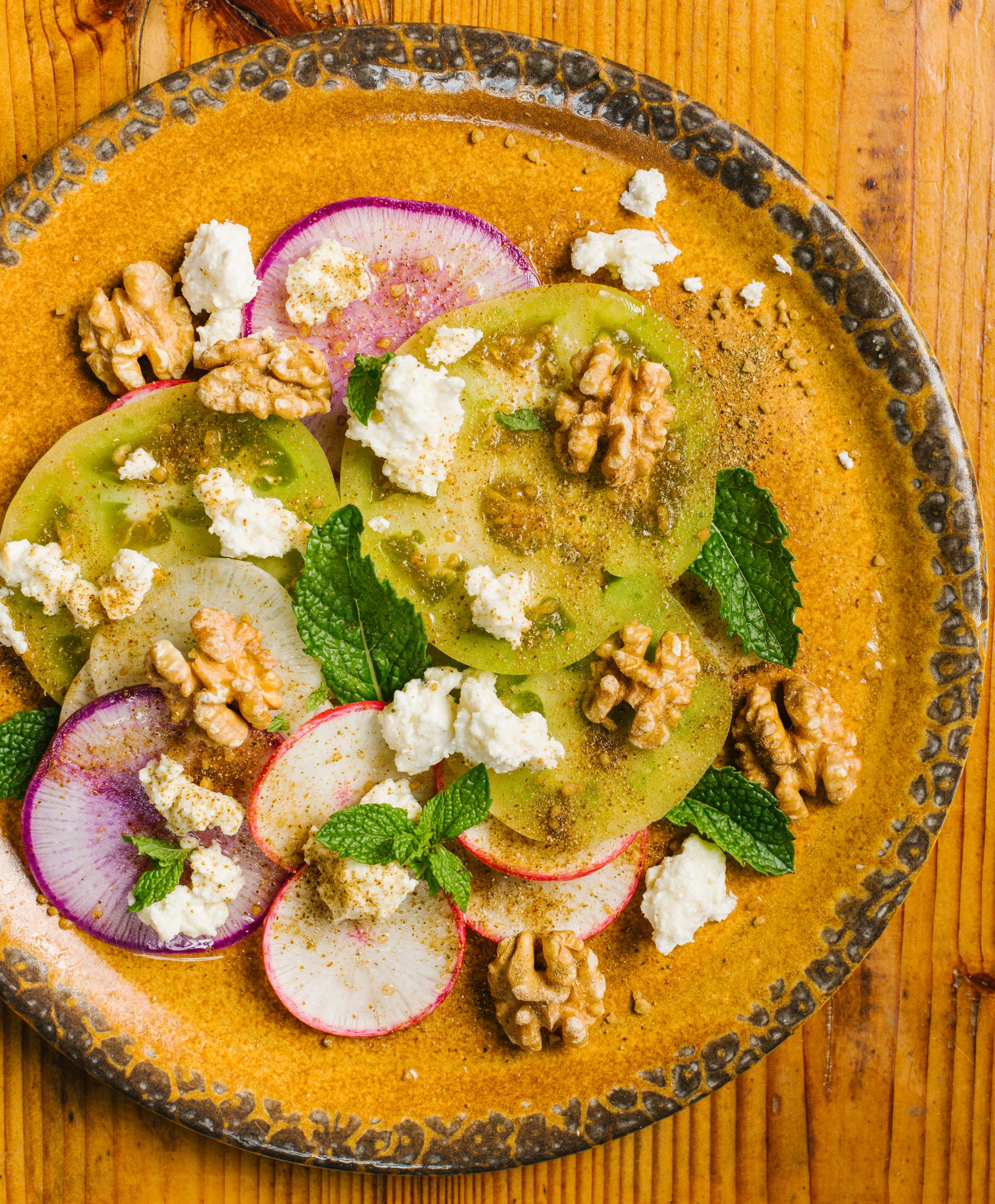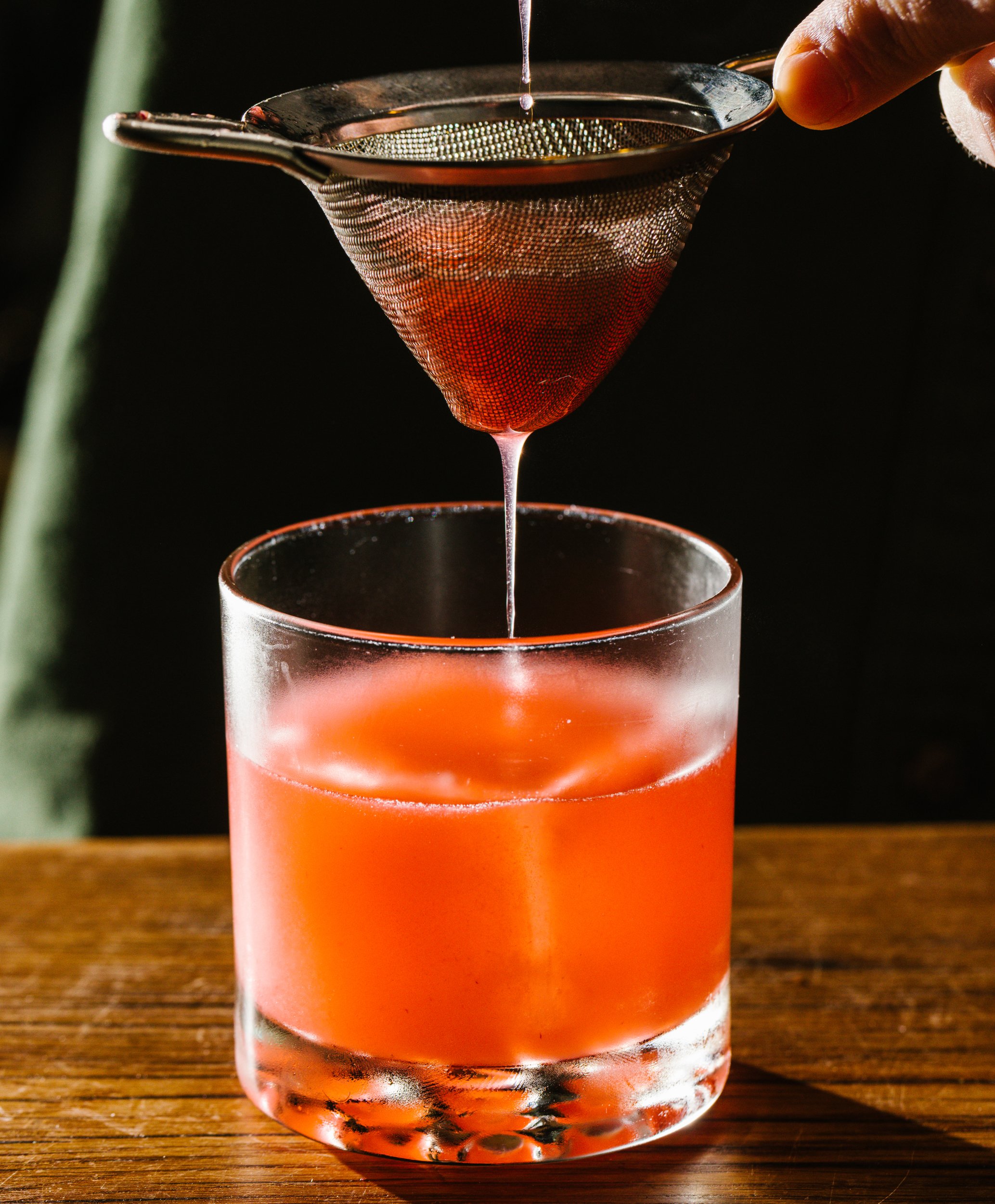Edible Food Find: Forage
Photos by Linda Campos
On a Wednesday afternoon, prepping for dinner service, Eric Cooper tries a dab of housemade hot sauce that another Forage chef just finished making—outside, that is, since the fumes would overpower the small, garden-level restaurant near Harvard Square. He nods in approval, unfazed, though the ghost pepper hot sauce’s menu description reads, “Fuego. Seriously. You’ve been warned.”
Since spring of 2016, Forage owner Stan Hilbert and chef Eric Cooper have served almost exclusively local cuisine at their bistro on Cambridge’s Craigie Circle. The pair met years ago at Ten Tables in Jamaica Plain, where they nurtured their passion for intimate neighborhood restaurants that spotlight regional ingredients. Combining that passion with ethical business practices, great service and delicious food, Hilbert and Cooper founded their cozy spot, and called it Forage.
The restaurant seats 48 inside, 60 including a seasonal patio, and serves dinner Mondays through Saturdays. About 98% of their ingredients are sourced in New England, says Hilbert, only excluding what isn’t produced around here, like citrus, sugar, cooking oils and some fresh herbs. “We’re an ingredient-based cuisine,” says Cooper. “That’s why our menu will change more or less every day.”
Their current offerings are heavy on mushrooms, seafood and produce like root vegetables, peppers and squash, anchoring their menu in a deep sense of place. “These are things that taste like New England to me. I grew up eating these things fresh from farms,” says Cooper.
For example, explains Cooper, he buys spinach all winter from Queen’s Greens in the Pioneer Valley, a company growing salad greens in sunlight-heated tunnels with almost no carbon footprint throughout the winter, which, says Cooper, “rivals what you’d find anywhere else in the world.”
Cooper researches sustainable seafood weekly, meaning their menu sees catches like bivalve shellfish, bluefish and herring. A few times a year, Cooper buys a whole pig—this winter he’s excited about a Guinea Hog coming from Rhode Island, the kind of whole animal he can order in the winter when the restaurant is busier.
Also on their wintertime menu are storage crops like potatoes, winter squash, sweet potatoes, cabbage, parsnips and carrots, and house-canned spring and summer veggies like fiddleheads. While most New England restaurants only stock fiddleheads in the spring, Cooper cans them to serve all year round. Appropriately, Forage’s logo “F” curves in a furled fiddlehead at the top.
Along with supporting local farms, Forage manages to minimize food waste to practically nothing—veggie scraps are dried and turned into seasonings, or even added to cocktails in their highly inventive bar program.
Consider visiting Forage on a Tuesday—each week sees a different seasonally driven wine dinner, where Hilbert and Cooper pair a hyper-seasonal four-course menu with their favorite non-interventionist wines.
“We try to avoid pretension,” says Cooper. “I want people to walk out of here and say, ‘I want to try and make this at home.’” He keeps all recipes that appear on Forage’s menu typed up and cataloged, and will share recipes with anyone who asks.
“We’re a place where people come for comforts,” says Hilbert. One comfort is knowing where your food comes from. Another is great service, he says, and another is knowing that the folks providing that service are being paid well. Sure, the food is inventive, delicious and sourced locally, says Hilbert, but what sets them apart is their ethos. “I think working hard and caring and being kind is just as important as anything,” he says.
This story appeared in the Winter 2023 issue.



